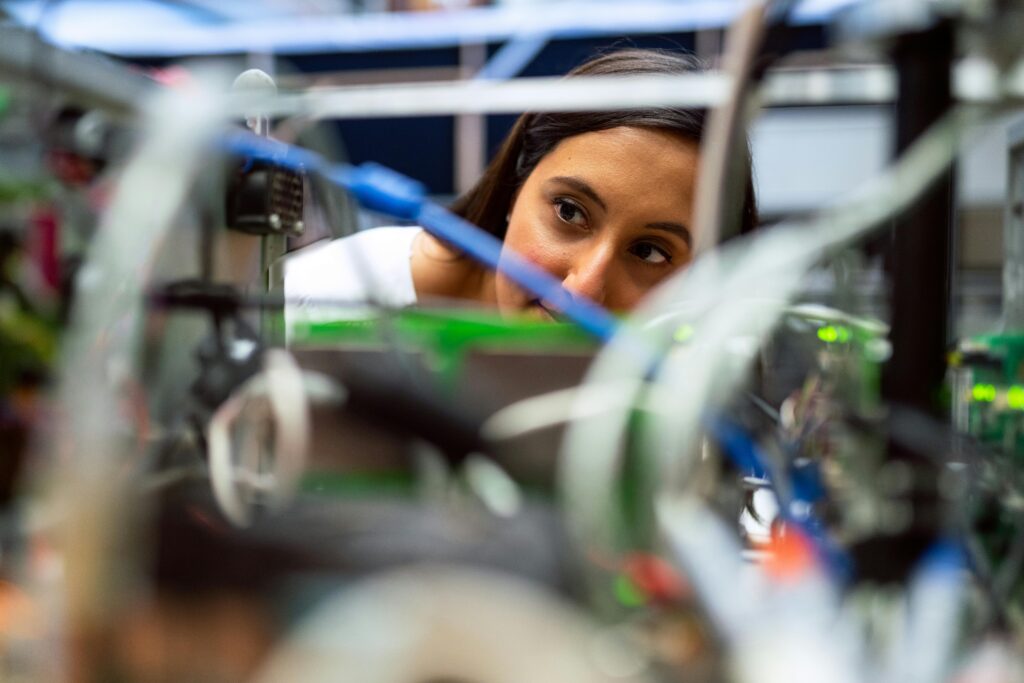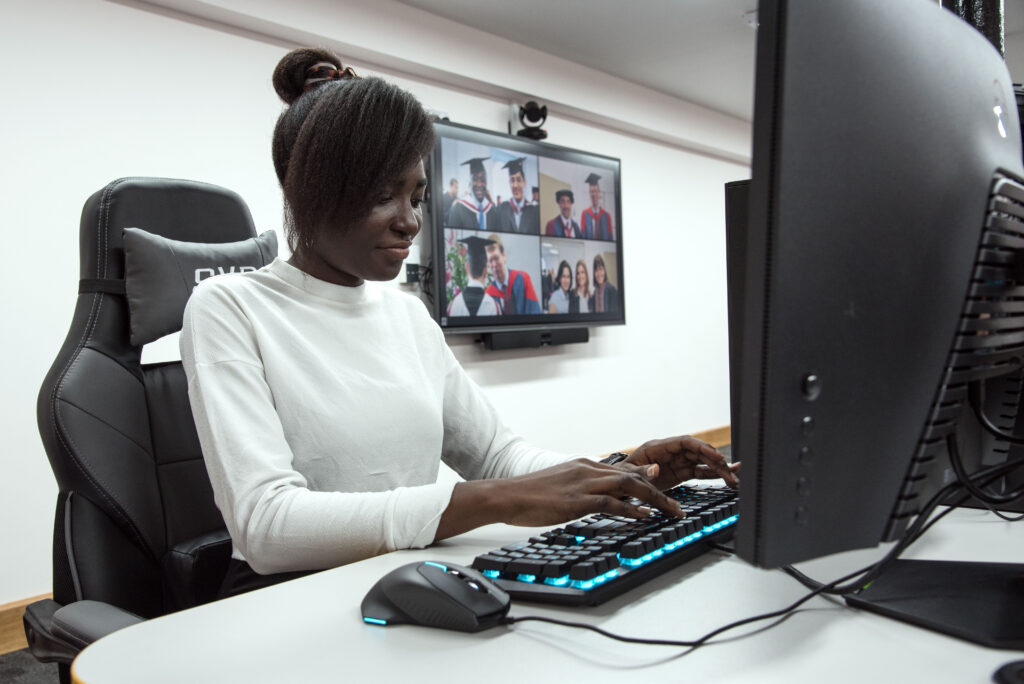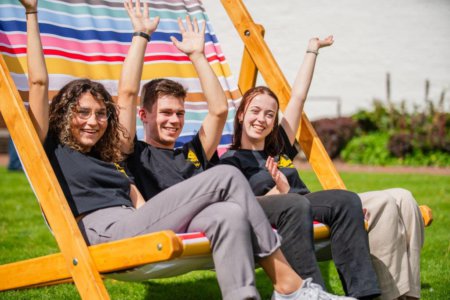In today’s fast-evolving tech landscape, women are pivotal in driving innovation and transformation. They break barriers, lead groundbreaking projects, and champion diversity and inclusion across various sectors. Their contributions are reshaping the industry and setting new standards for future generations. Among these trailblazers are Siemens’s CIO Hanna Hennig, Nokia Technologies’s President Jenni Lukander, Bosch’s Group Chief Digital Officer Tanja Rueckert, and CEO & founder of Coding Black Females Charlene Hunter MBE is the.
These examples suggest that women have come a long way in breaking the proverbial glass ceiling, but there is still much to be done. “According to a 2022 Tech Nation report, women constitute only 26% of the UK’s tech sector,” says Dr Meng-Hsuan Fu, Lecturer in Computing at the University of Buckingham. “As computer technology influences everything from daily routines to critical decision-making processes, it is essential to incorporate diverse voices to effectively address societal needs.”
The University of Buckingham’s School of Computing is at the forefront of this movement, championing diversity and equality in Computer Science with a key goal of inspiring the next generation of women in this male-dominated field. The school’s proactive approach to creating an inclusive environment shows it’s serious about righting the gender imbalance and getting more women to pursue careers in technology.

“The School of Computing is working towards achieving a high level of inclusivity and diversity, and it is visible in its environment in several ways,” says Ilesanmi Ayomide Queen Elizabeth, a final-year Computing student. “Not only does the School consist of people from different ethnic backgrounds and cultures, but it also includes a higher-than-average number of women in the classrooms.”
The University’s dedication is further exemplified by its recognition of Prof. Sue Black, who was awarded an Honorary Doctorate for her services to promote women in tech and the campaign to save Bletchley Park, home of the WW2 codebreakers.
By combining theory and practice, programmes at the UK’s only independent university with a Royal Charter meet the global demand for tech-savvy entrepreneurial innovators adept at solving complex challenges. As many as 95.3% of its computing graduates are employed or engaged in further study (HESA Graduate Outcomes Survey 2024, based on data that reflects the graduates of 2021/22). The sector average is 89%.
Regardless of the programme students choose, they get to receive full support. The academic open-door policy provides easy access to lecturers, while small class sizes ensure personalised attention. The University’s commitment to truth and freedom of speech cultivates an environment where students are encouraged to explore their ideas and passions.
“I am taught the importance of diversity and inclusion and encouraged to feel confident that I belong in the tech sector,” Elizabeth says. “The School of Computing conducts weekly career seminars, and the session led by Dr Bola Grace (Royal Academy of Engineering Visiting Professor) was particularly impactful and my favourite session so far. She addressed the key issues women face in the industry, strategies to tackle these challenges, and ways to remain resilient.”
Another student, Julia Szostakiewicz agrees. “The initiatives at Buckingham are brilliant. Despite being in a male-dominated field, I’ve always felt supported,” she says. “My class has a balanced female-to-male ratio, so I’ve never felt out of place.
Students also benefit from mentorship programmes that support their academic and professional growth. These promote close relationships between tutors and tutees, helping with course selection, study path development, and addressing learning barriers. Tutors act as mentors, listening to students’ concerns about academic and future career paths and guiding them to seek professional counselling when necessary.

Source:University of Buckingham
“I am currently paired with a female mentor/personal tutor who has provided guidance, feedback, and encouragement, helping me navigate academic and career challenges,” says student Nariman Tanvir. “This mentorship, combined with empowering seminars, significantly boosted my confidence and reinforced my commitment to pursuing a career in technology.”
The scarcity of female role models in the industry can be discouraging. To combat this, the School provides many networking opportunities for female students. The School organises meet-up events at the beginning and end of each term, inviting all students to join and network in a relaxed setting. Students can socialise over lunch, share experiences, and receive senior-level guidance. As the university is one of the safest in the UK, students not only feel comfortable physically and mentally when attending these events, but can access all other avenues to work, network, socialise, and contribute to their field as well.
“This gathering promotes friendships among students and helps them adapt to university life,” says Dr. Fu. “For female students, this inclusive programme promotes equal participation, breaks down gender barriers and helps them build their social networks within the male-dominated student body.”
For Tanvir, these events make it easy for her to seek out and connect with female mentors and peers. “Participating in conferences, virtual internships, and similar events provided me with the opportunity to network with successful women in the field,” she says.
Tanvir believes that having highly accomplished female lecturers at the University is just as encouraging and inspiring. “These lecturers have served as powerful role models, showing us that success in a traditionally male-dominated industry is not only attainable but also within reach,” she says.
The best part? Scholarships. The school offers a scholarship or bursary worth 2,000 pounds for female undergraduates. “This aims to attract and assist female students to pursue this field,” says Dr. Fu. “This shows the School of Computing’s commitment to promoting diversity.”
Szostakiewicz, the first person in her family to attend higher education, is grateful for The Lillingstone Trust Scholarship. “Without the scholarship offered to me, I would have been unable to afford the cost of studying, and so I am forever grateful for the opportunity that has been presented to me,” she says.
What’s more, the university is known for having one of the lowest crime rates in the UK, which provides a safe and supportive environment for all its students.
Learn more about the University of Buckingham.
Follow the University of Buckingham on Facebook, X, Instagram, and YouTube












